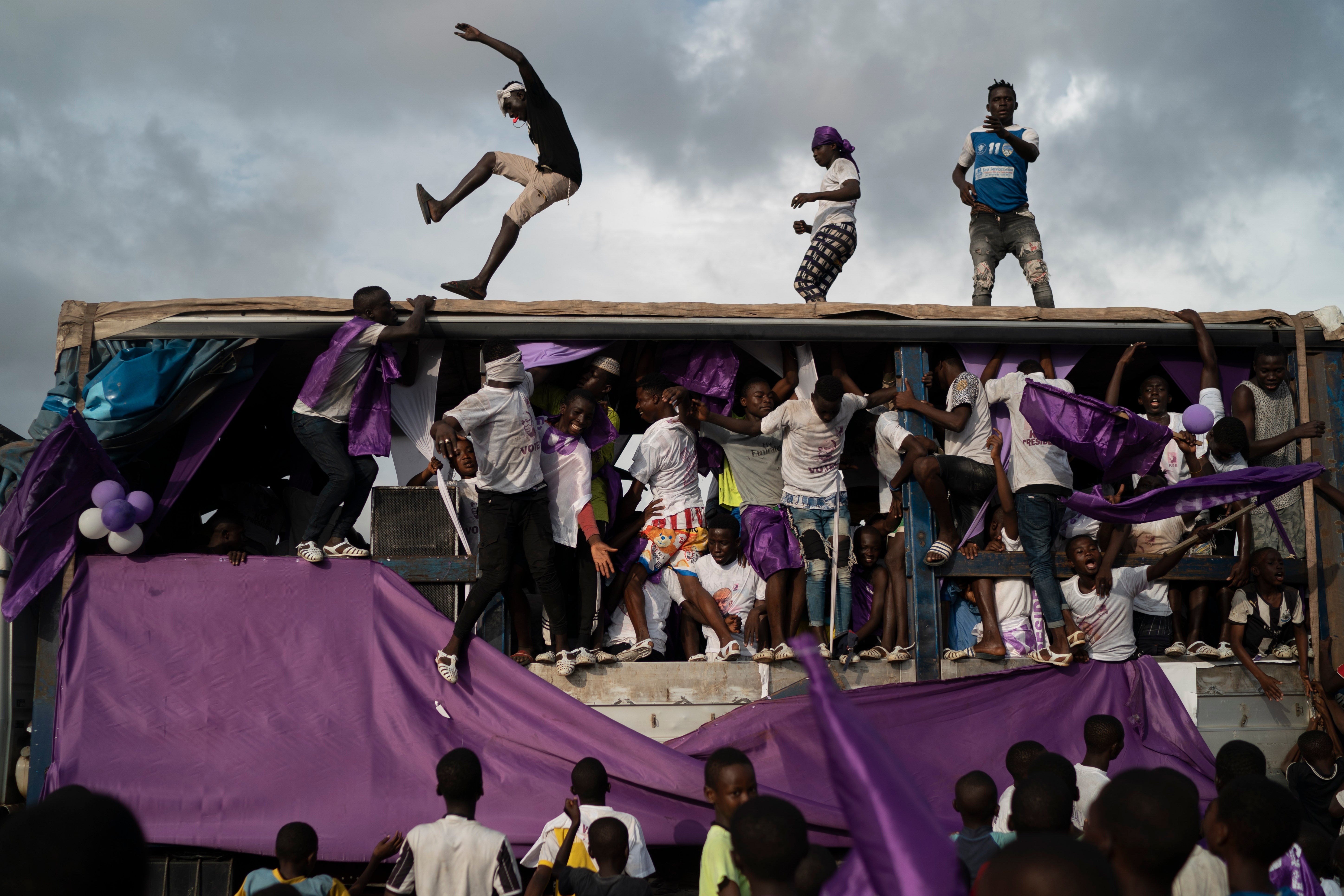Ivory Coast tensions rise as president seeks 3rd term
Opposition activists are threatening to block access to polling stations Saturday in an effort to disrupt the presidential election in Ivory Coast, where incumbent Alassane Ouattara is seeking a controversial third term after nearly a decade in power

Your support helps us to tell the story
From reproductive rights to climate change to Big Tech, The Independent is on the ground when the story is developing. Whether it's investigating the financials of Elon Musk's pro-Trump PAC or producing our latest documentary, 'The A Word', which shines a light on the American women fighting for reproductive rights, we know how important it is to parse out the facts from the messaging.
At such a critical moment in US history, we need reporters on the ground. Your donation allows us to keep sending journalists to speak to both sides of the story.
The Independent is trusted by Americans across the entire political spectrum. And unlike many other quality news outlets, we choose not to lock Americans out of our reporting and analysis with paywalls. We believe quality journalism should be available to everyone, paid for by those who can afford it.
Your support makes all the difference.Opposition activists are threatening to block access to polling stations Saturday in an effort to disrupt the presidential election in Ivory Coast, where incumbent Alassane Ouattara is seeking a controversial third term after nearly a decade in power.
An alliance of opposition parties is boycotting the vote and has called on activists to prevent polling stations from opening, setting up a potential showdown in a country where post-election violence killed more than 3,000 people in 2010-2011.
At least 20 people have died in unrest leading up to the vote, though the opposition puts the death toll at 70. The prosecutor of the International Criminal Court has expressed deep concern about “an escalation of serious violence over the past few days in some towns and cities.”
“I call on all political actors and their supporters to show calm and restraint,” Fatou Bensouda said. “The violence seen in Côte d’Ivoire during the first pre-election crisis of 2010 must not be repeated.”
The president arrived by helicopter to his final campaign rally Thursday in the Abobo neighborhood of Abidjan, where he addressed thousands of supporters, many wearing fabric emblazoned with his image.
“Don’t accept being prevented from voting, you are going to protect the polling stations,” he told them.
“Ivory Coast wants peace, we don’t accept disorder," Ouattara said.
Opposition candidates Pascal Affi N’Guessan and Henri Konan Bedie are urging acts of peaceful resistance after legal efforts to throw out Ouattara's candidacy failed. The president maintains the two-term limit does not apply to him because a new constitution was approved in a 2016 referendum.
“I call on Ivorians to intensify actions on the ground. There will be no elections on Oct. 31 in Ivory Coast," N’Guessan said in an interview this week with France 24 and Radio France Internationale.
“Roadblocks will be set up all over the country and the police won’t be able to stop us. We are going to impose respect for the constitution on Mr. Ouattara."
The president, who has broad international support and was re-elected five years ago with nearly 84% of the vote, initially said he would not seek a third term. He backtracked, though, after his chosen successor died from a heart problem in July.
Critics say Ouattara has essentially shaped the race to his favor, stacking the electoral bodies with his supporters to ensure any legal appeals fail. Forty of the 44 people who applied to run had their candidacy rejected, including two prominent politicians in exile.
Guillaume Soro, a former prime minister and president of the National Assembly, remains in France after his return to Ivory Coast was thwarted by criminal charges his followers say were politically motivated. Former president Laurent Gbagbo who is living in Belgium while ICC prosecutors appeal his acquittal, was struck from the electoral list and refused a passport.
Ouattara will face just one other candidate, Konan Bertin Kouadio, who broke away from his longtime party earlier this year to run as an independent when they chose Bedie instead as their standard bearer. Kouadio received less than 4% of the vote in the 2015 presidential election.
Ouattara has rejected calls for an election postponement, insisting that the vote will be held as scheduled Saturday and that no changes will be made to the country's Independent Electoral Commission.
“Ivory Coast is not in crisis. Ivory Coast is at peace. And we must continue to preserve this peace,” Ouattara said at the start of his campaign earlier this month. “We do not want more violence. We want the president of the republic to be chosen through the ballot box.”
___
Toussaint N'Gotta contributed.